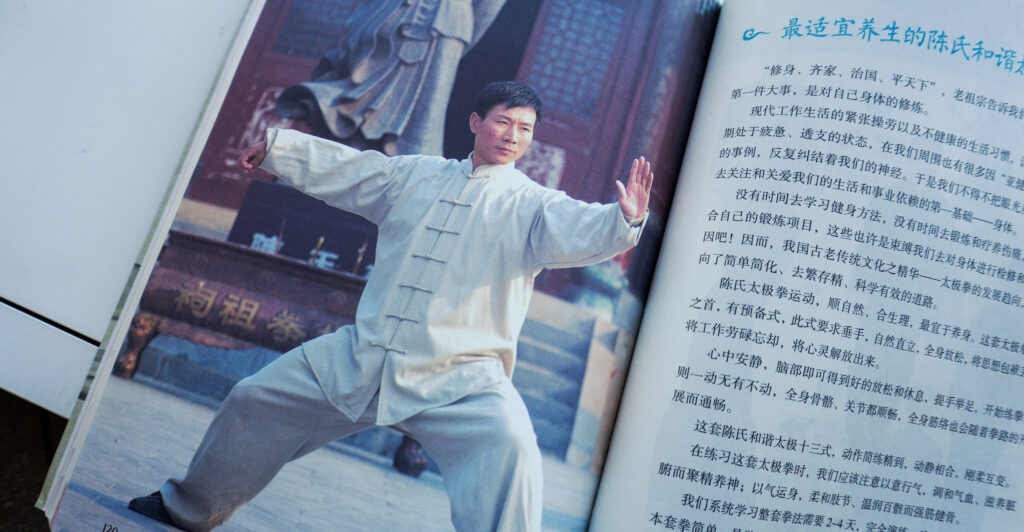
It is said that during the Southern Song Dynasty (1127–1279), in the twelfth century, a man called Zhang Sanfeng (張三豐) walked the earth. Adept in Shaolin kung fu and incomparably skilled in other styles of martial arts, Zhang had the heart for self-cultivation and had his sights set on the pursuit of the Dao, or the Way.
The History of Ming describes him as a seven-foot-tall man with spear-shaped whiskers and the posture of a pine tree. Zhang abandoned his secular life — leaving behind his wealth and property — to wander about in the. He wore the same Taoist robe all year round and lived as a hermit for some time in an effort to sever his worldly desires.
Although it is unknown when he “disappeared” — and some accounts say he is still wandering the earth — it is said that Zhang Sanfeng lived as a human for over 130 years before achieving immortality as a deity. Many of his life years were spent in the Wudang Mountains, where he finally settled down to cultivate and eventually established a novel style of martial arts that would survive to this day.
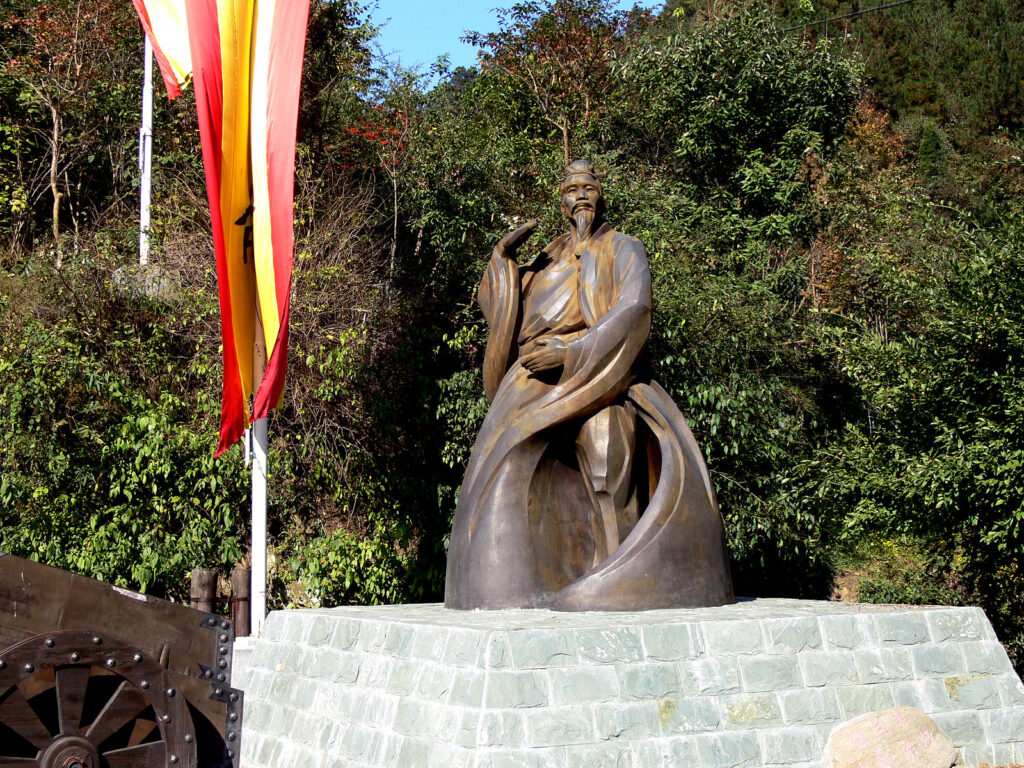
A slow-moving martial arts practice
Master Zhang mastered the internal martial arts (Neijia 內家) which unlike their external counterparts — focused on physiological aspects — placed mental and spiritual cultivation at the core of the discipline.
Legend has it that one night the ruler of Heaven, the great Jade Emperor (Yù Huáng 玉皇), visited him in a dream and taught him the precious secrets of the Tao. The experience was so solemn that upon waking, Zhang was inspired to create an unprecedented style of martial arts in which mind and spirit were the source of strength.
This is how tai ji quan (太極拳), or Tai Chi, was born. With internal energy overcoming physical force, softness proved more empowering than toughness, and yielding became more effective than attacking.
The gentle strength of Tai Chi was corroborated when Master Zhang was suddenly attacked by a gang of bandits who began throwing punches and kicks at him. Zhang dodged all the blows by moving swiftly and remained unharmed amidst the assailant’s vigorous attempts.
The wise Tai Chi master knew that his opponents would eventually exhaust themselves, so he decided to wait patiently and, when the time came, he struck them all down at once.
The essence of Tai Chi
Tai Chi is known today primarily for its health benefits but the essence of the practice has been lost over the years. In fact, Zhang first founded this discipline as a means of spiritual elevation — or self-cultivation — one of the noblest pursuits in ancient China and a fundamental component of its traditional culture.
Although the discipline of Tai Chi has been rebranded and commercialized in ways that its founder likely would not have approved of, there are many who still remember the wise teachings of Master Zhang,who emphasized that the key to spiritual progress was the abandonment of worldly desires and the attainment of a peaceful heart.
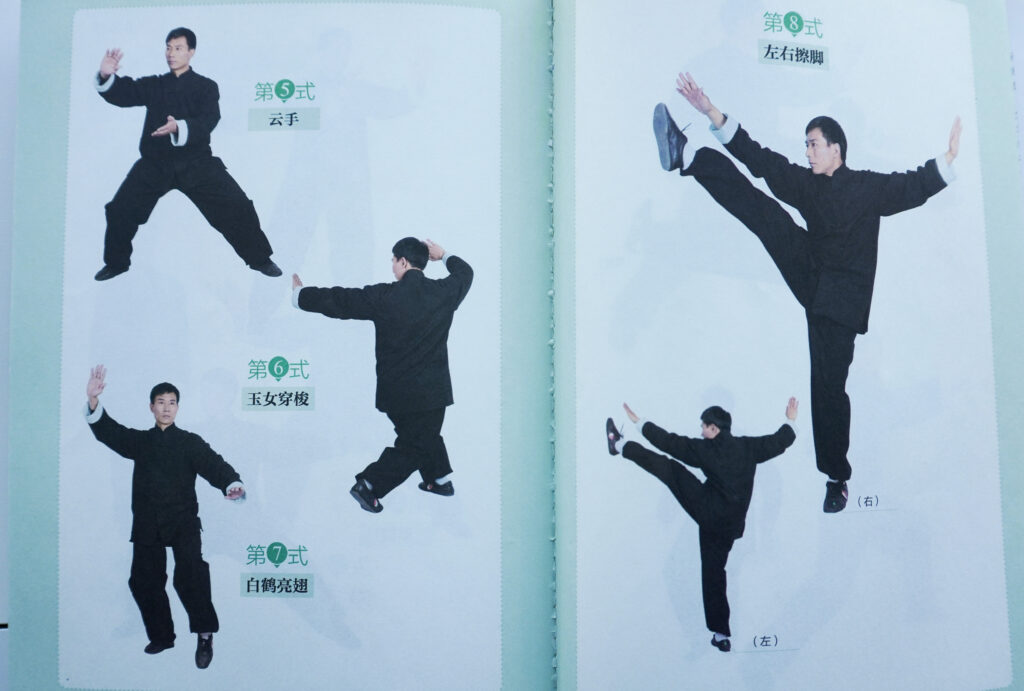
“To attain a tranquil mind one must rid oneself of all cravings and vexations. Only then can tranquility, concentration and wisdom blossom, like seeds in a field that was plagued with weeds. Cravings and ruminations are the weeds of the mind.”
Wudang mountains: the cradle of Daoism
Amidst the misty clouds, the majestic peaks of the Wudang mountains (武當山) rise. Located in central China’s Hubei Province, this mystical mountain range was Zhang’s chosen place to settle after his many years of wandering, and later became the main destination for devoted seekers of the Dao.
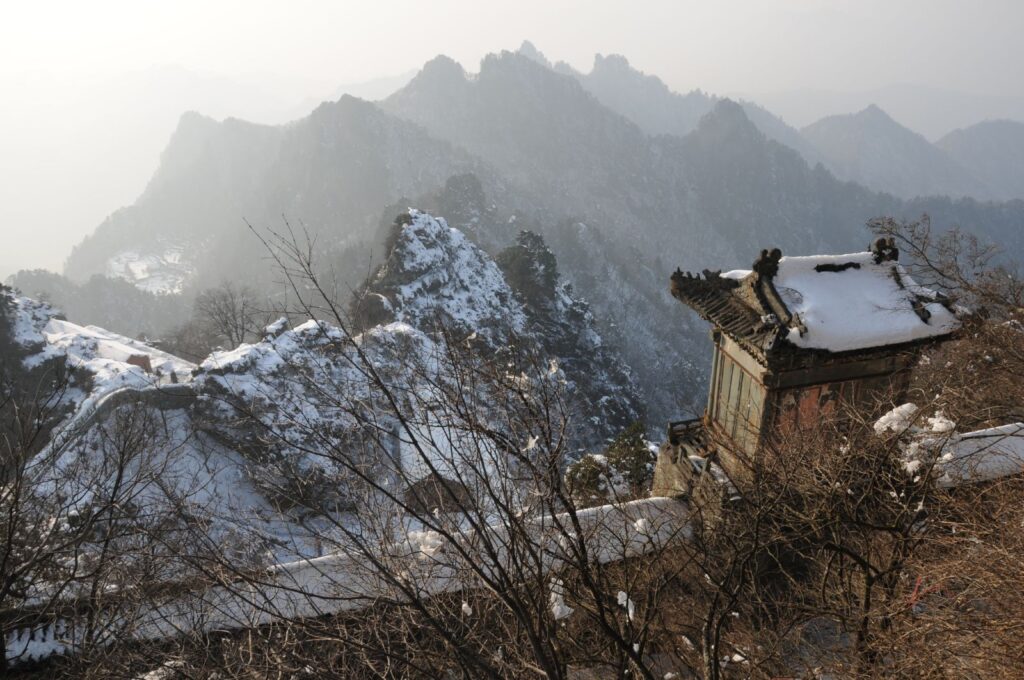
A close look at the scenery reveals the sacredness of a landscape in which the imposing yet serene nature of the high peaks embodies the Daoist philosophy of harmonizing opposites.
The sound of soaring pines accompanies the quiet cultivation of those immersed in meditation and, at the same time, surrounds the gentle movements of the dedicated martial artists who break into combat and shortly return to stillness, completing the balance of strength and grace.
The highest point of the mountain reaches 1,613 meters into the sky — nearly twice the height of the Burj Khalifa, the world’s tallest structure and building to date — living up to its well-deserved name: the “Heavenly Pillar Summit” (Tiān zhù fēng 天柱峰).
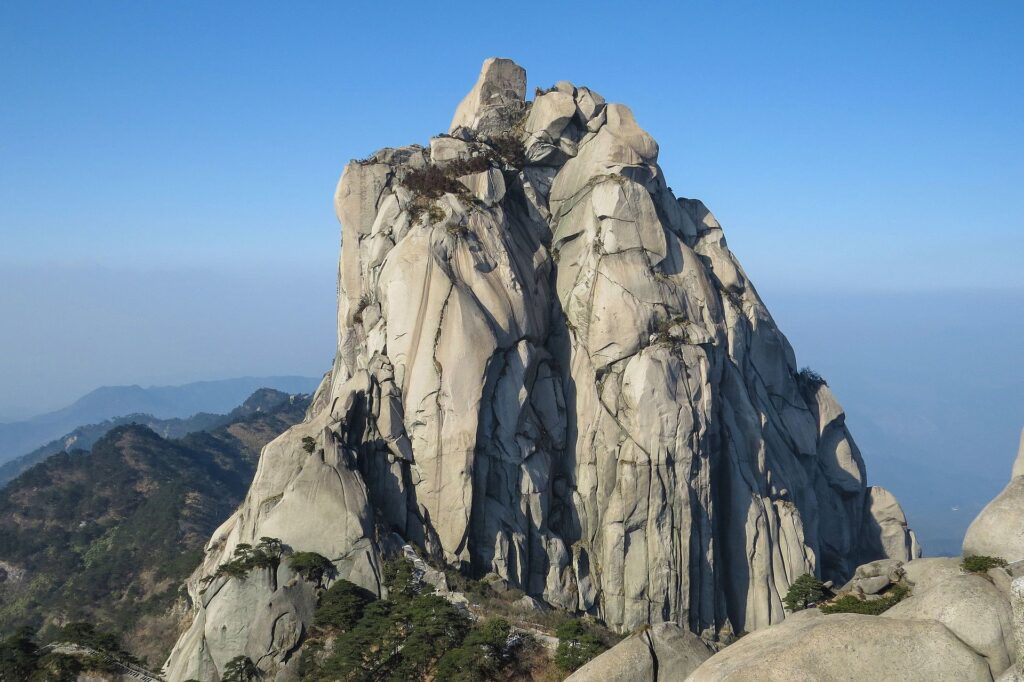
Impossibly erected off the sides of the towering cliffs, ancient Taoist temples decorate the slopes of the undulating panorama. Build over the course of nearly a millennium of Chinese history, these timeworn temples are a a precious reminiscent of the fifteenth century Ming Dynasty.
Many of the countless temples were built as a gesture of gratitude from Emperor Yongle to Master Zhang. The story goes that the emperor once wrote him a letter asking for advice, and although Zhang mostly proved hard to find, the emperor was lucky to receive a reply.
The old sage knew that the only thing the emperor lacked was longevity, so he extended his compassion to the ruler and revealed to him that the key to longevity was to attain a peaceful heart by renouncing worldly desires.
The wise advice was so moving to the emperor that he ordered the construction of 9 palaces, 72 temples and 36 nunneries in Wudang as a way to further promote the Tao and preserve the wisdom of the sages for posterity.
Overpowering violence with gentleness
When the Red Guards arrived at one of the temples in Wudang, they were surprised to find a 100-year-old Taoist nun, Li Chengyu, meditating with frightening tranquility on the temple’s steps. Having sealed her lips with glue, she had planted herself in front of her sacred temple as a form of nonviolent resistance.
It was the height of Mao Zedong’s Cultural Revolution (1966-1976) and the guards had received clear orders to destroy temples and suppress traditional faiths, which according to the Communist atheist ideology, were superstitious and a threat to the consolidation of the party. Taoist monks and nuns throughout the country had their lives taken away, while others were being forced into marriage (to break their vows of celibacy) or forced labor.
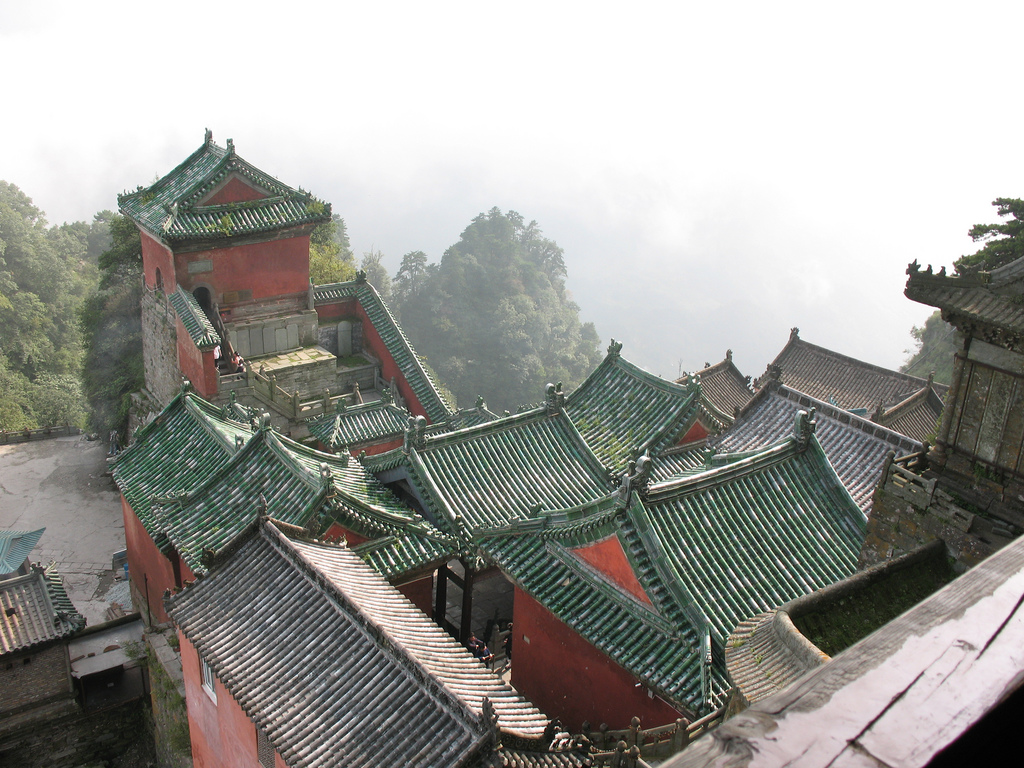
However, Li Chengyu’s gentleness overcame the young rogues’ aggression. Her stillness and determination made such a deep impression on the Red Guards that they spared her, and the temples in the area were saved.
Today, these temples remain in the majestic mountains of Wudang as a reminder of a higher truth that our ancestors knew and that recent generations have been forced to forget: that no matter how malicious and unbridled evil can be, nothing can overcome the power of a kind and unmoved heart.
